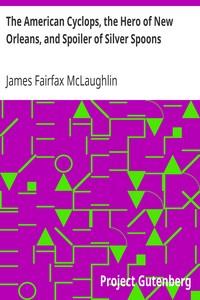|
|
Read this ebook for free! No credit card needed, absolutely nothing to pay.Words: 69766 in 12 pages
This is an ebook sharing website. You can read the uploaded ebooks for free here. No credit cards needed, nothing to pay. If you want to own a digital copy of the ebook, or want to read offline with your favorite ebook-reader, then you can choose to buy and download the ebook.

: Travels through the South of France and the Interior of Provinces of Provence and Languedoc in the Years 1807 and 1808 by Pinkney Lieutenant Colonel Ninian - France Description and travel@FreeBooksTue 06 Jun, 2023 TOUR, &c. &c. FROM my earliest life I had most anxiously wished to visit France--a country which, in arts and science, and in eminent men, both of former ages and of the present times, stands in the foremost rank of civilized nations. What a man wishes anxiously, he seldom fails, at one period or other, to accomplish. An opportunity at length occurred--the situation of my private affairs, as well as of my public duties, admitted of my absence. I embarked at Baltimore for Liverpool in the month of April, 1807. The vessel, which was a mere trader, and which had likewise some connexions at Calais, was to sail for Liverpool in the first instance, and thence, after the accomplishment of some private affairs, was to pass to Calais, and thence home. I do not profess to understand the business of merchants; but I must express my admiration at the ingenuity with which they defy and elude the laws of all countries. I suppose, however, that this is considered as perfectly consistent with mercantile honour. Every trader has a morality of his own; and without any intention of depreciating the mercantile class, so far I must be allowed to say, that the merchants are not very strict in their morality. Trade may improve the wealth of a nation, but it most certainly does not improve their morals. The Captain with whom I sailed was a true character. Captain Eliab Jones, as he related his history to me, was the son of a very respectable clergyman in the West of England. His mother died when he was a boy about twelve years of age, leaving his father with a very large family. The father married again. Young Eliab either actually was, or fancifully believed himself to be, ill-treated by his step-mother. Under this real or imaginary suffering he eloped from his father's house; and making the best of his way for a sea-port, bound himself apprentice to the master of a coasting vessel. In this manner he continued to work, to use his own expressions, like a galley-slave for five years, when he obtained the situation of mate of an Indiaman. He progressively rose, till he happened unfortunately to quarrel with his Captain, which induced him to quit the service of the Company. In the course of his voyages to India, and in the Indian seas, he made what he thought an important discovery relative to the southern whale fishery: he communicated it to a mercantile house upon his return, and was employed by them in the speculation. He now, however, became unfortunate for the first time: his ship was wrecked off the island of Olaheite, and the crew and himself compelled to remain for two or three years on that barbarous but beautiful island. Such is the outline of Captain Eliab's adventures, with the detail of which he amused me during our voyage. His character, however, deserves some mention. If there is an honest man under the canopy of Heaven, it was Captain Eliab; but his honesty was so plain and downright, so simple and unqualified, that I know not how to describe it than by the plain terms, that he was a strictly just and upright man. He had a sense of honour--a natural feeling of what was right--which seemed extraordinary, when compared with the irregular course of his life. Had he passed through every stage of education, had he been formed from his childhood to manhood under the anxious supervision of the most exemplary parents, he could not have been more strict. I most sincerely hope, that it will be hereafter my fortune to meet with this estimable man, and to enumerate him amongst my friends. I must conclude this brief character of him by one additional trait. A more pious Christian, but without presbyterianism, did not exist than Captain Eliab. He attributed all his good fortune to the blessing of Providence; and if any man was an example that virtue, even in this life, has its reward, it was Captain Eliab. In dangers common to many, he had repeatedly almost alone escaped. I had no other companion but the worthy Captain: I was his only passenger, and we passed much of our time in the reading of his voyages, of which he had kept an ample journal. His education having been rude and imperfect, the style of his writing was more forcible than pure or correct. I thought his account so interesting, and in many points so important, that I endeavoured to persuade him to give it to the public; and to induce him to it, offered to assist him, during our voyage, in putting it into form. The worthy man accepted my offer, but I found that I had undertaken a work to which I was unequal. I laboured, however, incessantly, and before our arrival had completed so much of it, as to induce the Captain to put it into the hands of a bookseller, by whom, as I have since understood, it was transferred into the hands of a literary gentleman to complete. In some misfortune the manuscript has been lost; and the Captain being in America, there is probably an end of it for ever. All I can now say is, that the public have sustained an important loss. In this employment our voyage, upon my part at least, passed unperceived, and I was at Liverpool, before I was well sensible that I had left America. Nothing is more tedious than a sea voyage, age, to those whose minds, are intent only upon their passage. In travelling by land, the mind is recreated by variety, and relieved by the novelty of the successive objects which pass before it; but in a voyage by sea, it is inconceivable how wearisome are the sameness and uniformity, which, day after day, meet the eye. When I could not otherwise occupy my mind, I endeavoured to force myself into a doze, that I might have a chance of a dream. One of the best rules of philosophy is, that happiness is an art--a science--a habit and quality of mind, which self-management may in a great degree command and procure. Experience has taught me that this is true. I had made many sea voyages before this, and therefore had repeated proofs of the observation of Lord Bacon, that, of all human progresses, nothing is so barren of all possibility of remark as a voyage by sea; nothing, therefore, is so irksome, to a mind of any vigour or activity. If a man, by long habit, has obtained the knack of retiring into himself--of putting all his faculties to perfect rest, and becoming like the mast of the vessel--a sea voyage may suit him; but to those who cannot sleep in an hammock eighteen hours out of the twenty-four, I would recommend any thing but travel by sea. Cato, as his Aphorisms inform us, never repented but of two things; and the one was, that he went a journey by sea when he might have gone it by land. The sight of land, after a long voyage, is delightful in the extreme; and I experienced the truth of another remark, that it might be smelt as we approached, even when beyond our sight. I do not know to what to compare its peculiar odour, but the sensations very much resemble those which are excited by the freshness of the country, after leaving a thick-built and smoky city. The sea air is infinitely more sharp than the land air; and as you approach the land, and compare the two, you discover the greater humidity of the one. The sea air, however, has one most extraordinary quality--it removes a cough or cold almost instantaneously. The temperance, moreover, which it compels in those who cannot eat sea provisions, is very conducive to health. We reached Liverpool without any accident; and as the Captain's business was of a nature which would necessarily detain him for some days, I availed myself of the opportunity, and visited the British metropolis. No city has been more improved within a short period than London. When I saw it before, which was in my earlier days, there were innumerable narrow streets, and miserable alleys, where there are now squares, or long and broad streets, reaching from one end of the town to the other: I observed this particularly, in the long street which extends from Charing Cross to the Parliament Houses. In England, both government and people concur in this improvement. From London, finding I had sufficient time, I visited Canterbury, and thence Dover. If I were to fix in England, it should be in Canterbury. The country is rich and delightful; and the society, consisting chiefly of those attached to the cathedral church, and to such of their families as have fixed there, elegant, and well informed, I have heard, and I believe it, that Salisbury and Canterbury are the two most elegant towns, in this respect, in England, and that many wealthy foreigners have in consequence made them their residence. Dover is an horrible place--a nest of fishermen and smugglers: a noble beach is hampered by rope-works, and all the filth attendant upon them. I never saw an excellent and beautiful natural situation so miserably spoilt. Free books android app tbrJar TBR JAR Read Free books online gutenberg More posts by @FreeBooks
: In Africa: Hunting Adventures in the Big Game Country by McCutcheon John T John Tinney - Africa East Description and travel; Hunting Africa East Africa@FreeBooksTue 06 Jun, 2023

: The Swedish-Norwegian Union Crisis A History with Documents by Nordlund Karl - Sweden - -Politics and government 1814-1905; Norway Politics and government 1814-1905@FreeBooksTue 06 Jun, 2023

: The Atlantic Monthly Volume 2 No. 14 December 1858 A Magazine of Literature Art and Politics by Various - American periodicals The Atlantic Monthly@FreeBooksTue 06 Jun, 2023
|
Terms of Use Stock Market News! © gutenberg.org.in2025 All Rights reserved.






